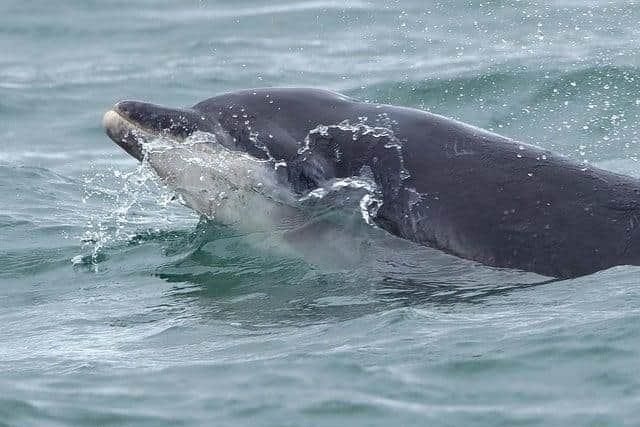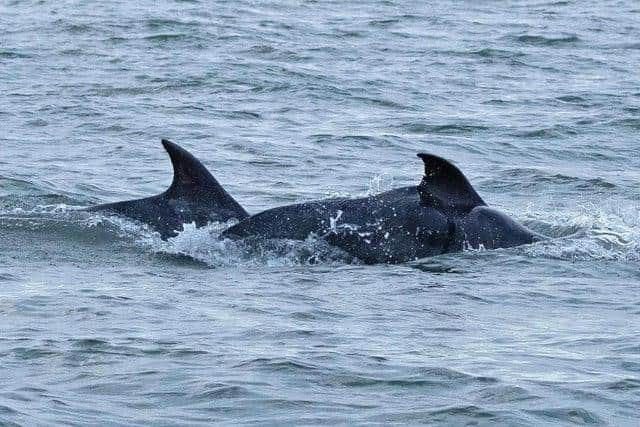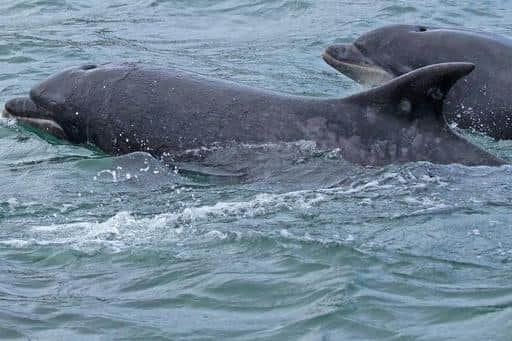Watch pod of leaping bottlenose dolphins spotted off North East coast
and live on Freeview channel 276
The dolphins, believed to be from Scotland, have been spotted by walkers along the North East coast this month.
On Saturday, May 9 a group of around 15 was filmed off the coast at Newbiggin-by-the-Sea, in Northumberland.
Advertisement
Hide AdAdvertisement
Hide AdDays later on Tuesday, May 12 at around 4.30am they were seen by two residents taking a sunrise walk on Blyth beach.


A number of sightings have also been reported of the group enjoying the water at Whitley Bay in recent days.
As the weather turns warmer, it’s not uncommon for dolphins to visit North East shores.
Elsewhere, a group of seven white-beaked dolphins were spotted off the coast at Whitburn on Saturday.
Advertisement
Hide AdAdvertisement
Hide AdDurham Wildlife Trust have also received reports of minke whale sightings.


A spokesperson for the trust said: “While dolphins visit our coast every year, sightings of them understandably cause excitement.
“A member of staff from the Durham Wildlife Trust team spotted a group of seven white-beaked dolphins off the coast at Whitburn last Saturday, one of which leapt out of the water during the sighting - a wonderful thing to see.”
The Scottish pod, which is thought to be from a group which normally live in the Moray Firth near Inverness, includes a mother and calf, with the adult female having been known to observation groups in Scotland since 2003.
Advertisement
Hide AdAdvertisement
Hide AdThe Moray Firth dolphins are the world’s most northerly population with over 130 of the species calling it home.


They are bigger than their counterparts elsewhere in the world, having evolved to insulate themselves from the cold North Sea temperatures.
A spokesperson for the Marine Management organisation said: “As we get warmer weather it’s quite common for dolphins, porpoises and whales to visit English shores.
“This offers a fantastic opportunity for wildlife watchers but it is essential that the health and well-being of the animals is considered at all times and that we keep our distance when observing them.
Advertisement
Hide AdAdvertisement
Hide Ad“Under the Wildlife and Countryside Act 1981 it is an offence to intentionally and/or recklessly disturb these endangered animals.”